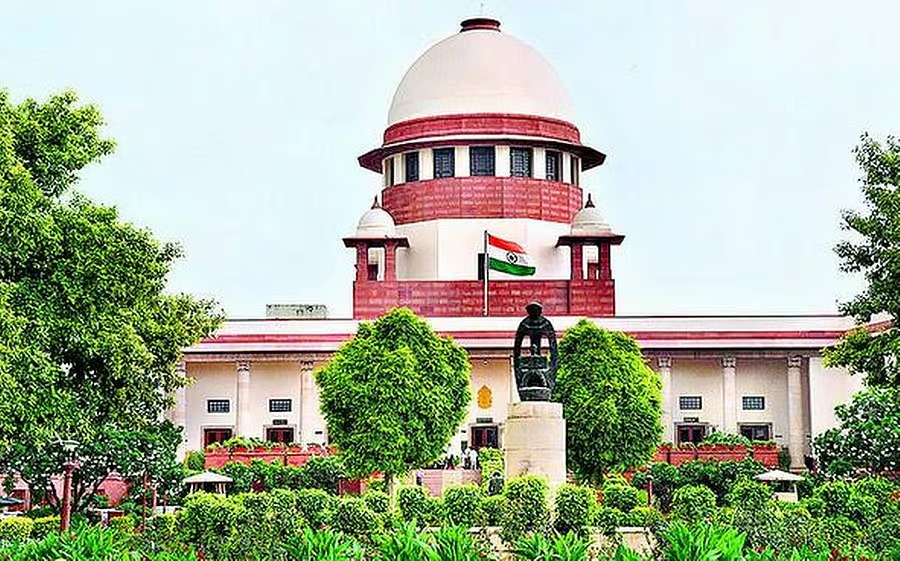
Supreme Court Empowers Appellate Courts to Grant Interim Relief Even After Trial Court Dismissal
Judges clarify appeals are continuation of original suits, ensuring justice is not denied
Decision strengthens rights of litigants in property and civil disputes across India
By Our Legal Correspondent
New Delhi: November 26, 2025:
The Supreme Court of India has delivered a significant ruling that reshapes the powers of appellate courts in civil litigation. In a landmark judgment, the Court held that appellate courts could grant interim relief even if the original suit has been dismissed by a trial court.
Also Read: Supreme Court Orders Nationwide Scrutiny of Private and Deemed Universities in India
This ruling came from a bench of Justices J.B. Pardiwala and K.V. Viswanathan, who set aside a Gujarat High Court decision that had refused to grant interim relief to a plaintiff on the grounds that the trial court had already dismissed the suit.
What the Court Said
The Supreme Court observed: “Just because the original suit came to be dismissed, that does not mean that in the pending appeal, the appellate court cannot grant appropriate relief as prayed for.”
The bench emphasized that an appeal is considered a continuation of the original suit, and therefore, appellate courts have co-extensive powers to grant relief. This includes issuing interim orders to preserve the status quo and prevent irreparable injury until the final disposal of the appeal.
Case Background
The case involved a dispute over specific performance of an immovable property agreement. The plaintiff sought a status quo order to prevent changes to the property while the appeal was pending. The Gujarat High Court had rejected this request, reasoning that since the trial court dismissed the suit, no interim relief could be granted.
Also Read: IBBI Issues New 2025 Guidelines to Speed Up Insolvency Professional Appointments Across India
The Supreme Court disagreed, ruling that appellate courts must have the authority to protect litigants during appeals. Without such powers, parties could suffer irreparable harm before their appeals are decided.
Why This Matters
- Protecting litigants: Parties who lose in trial courts, but appeal now have stronger safeguards against irreparable harm.
- Property disputes: In cases involving immovable property, appellate courts can maintain status quo to prevent unfair transfers or alterations.
- Judicial efficiency: The ruling ensures that appeals are meaningful and not rendered ineffective by rigid procedural barriers.
- Legal clarity: The decision resolves confusion among lower courts about whether interim relief can be granted after dismissal of suits.
Expert Reactions
Legal experts have welcomed the ruling as a progressive step. According to senior advocates, the judgment reinforces the principle that justice should not be denied merely because of procedural technicalities.
One lawyer noted: “This ruling ensures that appellate courts can act to prevent injustice. Otherwise, appeals would become hollow remedies if parties suffered irreversible damage before final decisions.”
Another expert highlighted that the judgment aligns with the principle of equity, ensuring courts can balance interests and prevent misuse of legal processes.
Broader Legal Context
The Supreme Court has previously clarified that interim relief can only be granted after recording prima facie satisfaction about the maintainability of a suit. This new ruling builds on that principle, extending it to appeals.
Also Read: CBDT Advisory: Taxpayers Must Disclose Foreign Assets and Income Under CRS & FATCA for Transparency
By recognizing appeals as a continuation of the original suit, the Court has reinforced the continuity of judicial proceedings. This means appellate courts are not limited by the trial court’s dismissal but can exercise full powers to protect rights until final adjudication.
Implications for Future Cases
- Civil suits: Litigants can seek interim relief during appeals, even after losing at trial.
- Commercial disputes: Businesses involved in contractual disagreements can prevent adverse actions while appeals are pending.
- Family property cases: Families fighting over inheritance or property division can maintain status quo until appeals are resolved.
- Judicial practice: High Courts and lower appellate courts will now follow this precedent, ensuring consistency nationwide.
Conclusion
The Supreme Court’s judgment empowering appellate courts to grant interim relief even after trial court dismissal is a landmark in Indian civil law. It strengthens the appellate process, protects litigants from irreparable harm, and ensures justice is not denied due to procedural rigidity.
By affirming that appeals are a continuation of the original suit, the Court has expanded the scope of judicial protection, making India’s legal system more equitable and responsive to the needs of litigants.
🔑 Suggested Keywords for SEO (Google + ChatGPT)
- Supreme Court appellate court interim relief India
- Appellate court powers civil suits India
- Supreme Court ruling property disputes India
- Interim relief after trial court dismissal
- Supreme Court judgment November 2025 India
- Civil litigation reforms Supreme Court India
- Appellate court authority interim orders
- Supreme Court appeal continuation of suit
- Gujarat High Court interim relief case
- Supreme Court protects litigants’ civil disputes